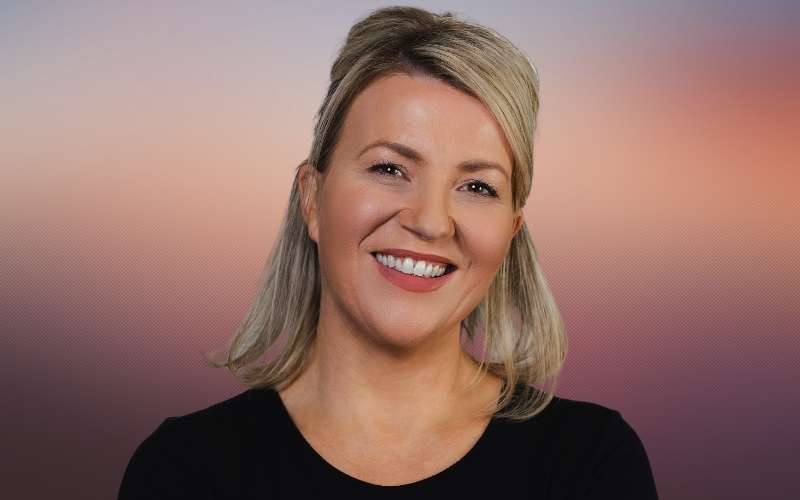Amidst continued economic concerns combined with some recent very high-profile privacy and data breaches, Australian consumers have grown increasingly suspicious of businesses’ and governments’ ability to remain ethical and protect consumers from technology risks.
The 2022 Edelman Trust Barometer found just over half of Australians trust the government to do the right thing, down 9 points year-on-year. Trust in businesses wasn’t a lot better at 58 per cent, down 5 points, while not-for-profits declined 4 points also to 58 per cent. The biggest concerns were around media. The barometer also found that only 40% of consumers say they trust brands to use their data responsibly and keep it safe. The national decline in trust has been felt across most industry sectors.
Customer experience, trust, and loyalty are tightly connected, and all are important for generating business growth and revenue. According to research from Weploy, organisations that scored well in trust ratings had customers that were 50% more loyal than those that scored poorly, and the Customer Satisfaction scores were 96% higher.
Building trust in the mind of customers, however, can take time as well as plenty of commitment and effort, and as the famous quote from M.J. Arlidge highlights, “Trust is a fragile thing – hard to earn, easy to lose.”
With the current economic environment and levels of uncertainty in Australia and across the globe, with high inflation, mortgage rate rises and high energy prices, consumers are wary and feel threatened. They’re currently more sensitive to the behaviour and attitudes displayed by Australian institutions and any failure to live up to promises will likely lead to a further decline in trust.
Why trust is the bedrock of customer experience success

If delivering personalised and seamless experiences for customers is important for you and your organisation in 2023 then building trust needs to be a top priority. Jane Tyzack, Founding Director of Change Playbook, points out that trust is a critical element in any customer experience strategy, “Customer experience profoundly impacts any organisation’s success, and trust plays an essential part in this. When customers have trust, they are more willing to share personal information, and this information is needed to provide personalised and more meaningful experiences”.
“Further”, says Tyzack, “building trust with customers is essential in building a good reputation, positive brand recognition, and forming a customer relationship based on loyalty”.

Trust is a factor in all purchases and interactions between a customer and an organisation. The level of trust someone has in a brand is based on the experiences they have with a brand as well as the brand’s reputation. Carl Gribble, Director of Experience Design at Evolut, says “A certain element of trust is required for every transaction we make. If I am going to hand over money, let’s say $10 for a bottle of water, I trust that I will receive that bottle of water once I hand over a $10 bill. If I’m paranoid, maybe because of past experiences where my trust has been breached, I will want the bottle of water before I hand over the money.”
Gribble adds, “When an organisation delivers a value proposition in market or makes a promise about its products or services, we automatically kind of believe in our minds that it’s real. But it is only real when the product or service is delivered and even then, it is only real when we use the particular product. We trust the product or service will do what we’ve been promised it will do. If it doesn’t then the trust customer have in the brand and its products will be eroded.”
Building trust with customers

Three different elements, according to Rod Netterfield Director of Humind, need to come together to build trust in the mind of customers. He says, “When I think about trust from a customer experience perspective, I think about three things: integrity, competency and dependability. Integrity speaks about the character of the organisation. Does it have principles and values that are guiding its behaviour and does the customer feel that the organisation will treat them fairly and honestly?”
“Competency refers to the organisation’s capability to deliver on its promises. Does it have the resources, tools, and skills to deliver on its promises? Is the organisation successful at what it does? Finally, dependability in the mind of a customer is about how much they can rely on the organisation to do what it says it’s going to do. Can the customer rely on the organisation to be there when things aren’t going well or there are problems? Can the customer depend on the organisation to protect their data and privacy?”
Each experience a customer has with your brand has the potential to reinforce or erode their level of trust. Tyzack says, “When it comes to customer experience and building trust, reliability and living up to one’s values are important factors; however, transparency and consistency also play vital roles. After all, transparency allows customers to establish clarity with service providers they’re interacting with while consistency – and quality of service – ensures that customers remain confident that their needs will be met”.
Following a number of highly publicised data breaches and cybersecurity failures in 2022 including Optus and Medibank, data security and privacy are a top priority for customers. With each high-profile breach that makes the headlines, customers increasingly worry whether their personal information is protected and being used appropriately. If customers have granted you access to their data, you have the responsibility to use that data only in mutually agreed-upon ways that enhance their experiences.
Failure to protect customer data or using it inappropriately will instantly erode the level of trust customers have in an organisation and its ability to protect them from threats. Tyzack says, “To build trust with their customers, organisations should demonstrate that they are committed to taking proactive steps to keep data safe and secure and provide clarity on how they are doing this – ensuring information about their approach is easy to access and understand”.
“Additionally,” says Tyzack, “organisations need to be transparent if something goes wrong, take swift ownership of the problem, and have processes in place for customers to raise any concerns or query requests without delay.” Netterfield concurs, “When things go wrong, we need to demonstrate tangible progress in solving the problem or data breach and to provide customers with credible information. If we can’t do those things quickly, we’re not going to recover that trust we might be losing.”
“It’s in those moments”, Netterfield adds, “when things are at their worst, you have the opportunity to recover well and build trust. Otherwise, you will completely erode the trust you may have spent years building.”
As well as behaviour and the way organisations act – honest, transparent, and easily comprehensible communication and information is vital in building trust. Netterfield comments, “If we think about the policies and procedures that we have in place, are they actually able to be read and understood by the average Australian. Is the language that we use written in plain and simple English that is free from jargon. Being a multicultural society are we producing information that is critical for our customers to understand in languages other than English.”
How important is employee experience in building trust?
Investing in the employee experience is essential for any organisation looking to build trust with their customers. The link between good employee experience and customer experience has been well demonstrated. According to Tyzack, “creating a supportive environment allows employees to develop the needed mindsets and skills to perform at their best, aligning them with customer-centric operations, therefore elevating customer experiences and driving long-term business success”.
Over the last year there has been a sharp decline in the level of trust Australians have in their institutions. This decline will impact the experiences consumers have with the brands they transact and interact with. Hopefully, the decline will be reversed in 2023 as it’s much easier for organisations to create better and more successful CX strategies if consumers trust them.


